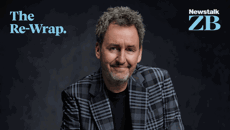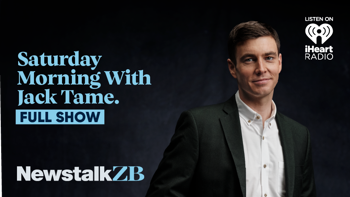New research from Auckland University shows only 24 doctors in the last 20 years have faced disciplinary action for inappropriately prescribing drugs.
Lead author of the study, doctor Katherine Wallis, told Tim Dower the numbers are so low because ideally drug dependence is treated as a health issue, not a crime.
"We are only looking at a small number who have come before the disciplinary process [but] obviously there are more doctors than that who have had trouble with drug dependence over the years. But that's mostly dealt with by the Medical Council's Health Committee and it's managed as a health issue rather than a disciplinary issue."
The study's aim was to find out the risk factors for doctors being put before the disciplinary process for drug problems.
Wallis said thankfully the study shows it's not a widespread issue.
"It hadn't been looked at before so we didn't know how many cases there were, and it was pleasing to see there weren't many that had come before disciplinary and often the cases that had, there had been other inappropriate behaviour...in addition to the inappropriate prescribing."
She said the research focused on doctors with drug dependencies who were using the drugs themselves.
"So we are talking about prescribing medications like morphine, sleeping tablets, that sort of thing."
"In the charges, it wasn't always clear who the prescriptions were made out to but sometimes they were for friends or neighbours and were taken by the doctors themselves."
Doctors are surrounding by and have access to drugs which make matters worse, Wallis said.
"It was trying to find the doctors who had issues with drug dependency and had come before the disciplinary process.
"Doctors obviously have easy access or easier access to drugs of dependence than everyone else."
She said the study's findings should help reassure patients that the system works.
"Obviously most doctors with problems are getting help and [in] very few [cases] the Medical Council has to resort to the disciplinary process."
Co-researcher Susie Middleton said the low number of cases and the 100 per cent rate of guilty cases suggested discipline is used as the last resort for dealing with drug-dependent doctors.
Further work is needed to understand the barriers and the enablers to reporting by colleagues to understand the extent of the problem in New Zealand and to identify systems that best manage drug dependence in doctors, Middleton said.
However, the Medical Council of New Zealand, which helps regulate doctors and assists with doctors' health, disputes these claims.
Andrew Connolly, chairman of the Medical Council, said the disciplinary processes for addressing this issue for both the council and the Health Practitioners Disciplinary Tribunal have worked well for many years.
"The council is of the view there is no need for change," Connolly told the Herald.
Penalties for this professional misconduct included removing the doctor from Medical Register, suspending the doctor for up to three years, imposing conditions on practice, costs and a fine up to $30,000.
The 25 cases included forging a colleague's personal stamp on prescriptions, giving a patient who the doctor was in a sexual relationship with drugs without a prescription, collecting drugs for personal use and prescribing drugs to a patient with addiction issues.
Researchers of the report pointed out that while the findings gave some insight into the disciplinary consequences of inappropriate prescribing of drugs of dependence in New Zealand, the extent of the problem remained unclear.
The study found that most disciplined doctors were men, working in general practice, and had been in practice a long time.
Middleton said it may be that drug-dependent doctors pose a greater risk to themselves than they do to the health and safety of the public.
Few cases, 16 per cent, came to the attention of the authorities via notification from medical colleagues, Middleton said.
"Doctors may be unaware of drug dependence in their midst, unaware of their duty to report, or unwilling to report," she said.
The researchers argued this issue needed to be taken more seriously.
Where to get help:
• Lifeline: 0800 543 354 (available 24/7)
• Suicide Crisis Helpline: 0508 828 865 (0508 TAUTOKO) (available 24/7)
• Youthline: 0800 376 633
• Kidsline: 0800 543 754 (available 24/7)
• Whatsup: 0800 942 8787 (1pm to 11pm)
• Depression helpline: 0800 111 757 (available 24/7)
• Rainbow Youth: (09) 376 4155
• Samaritans 0800 726 666
• If it is an emergency and you feel like you or someone else is at risk, call 111.
Take your Radio, Podcasts and Music with you









